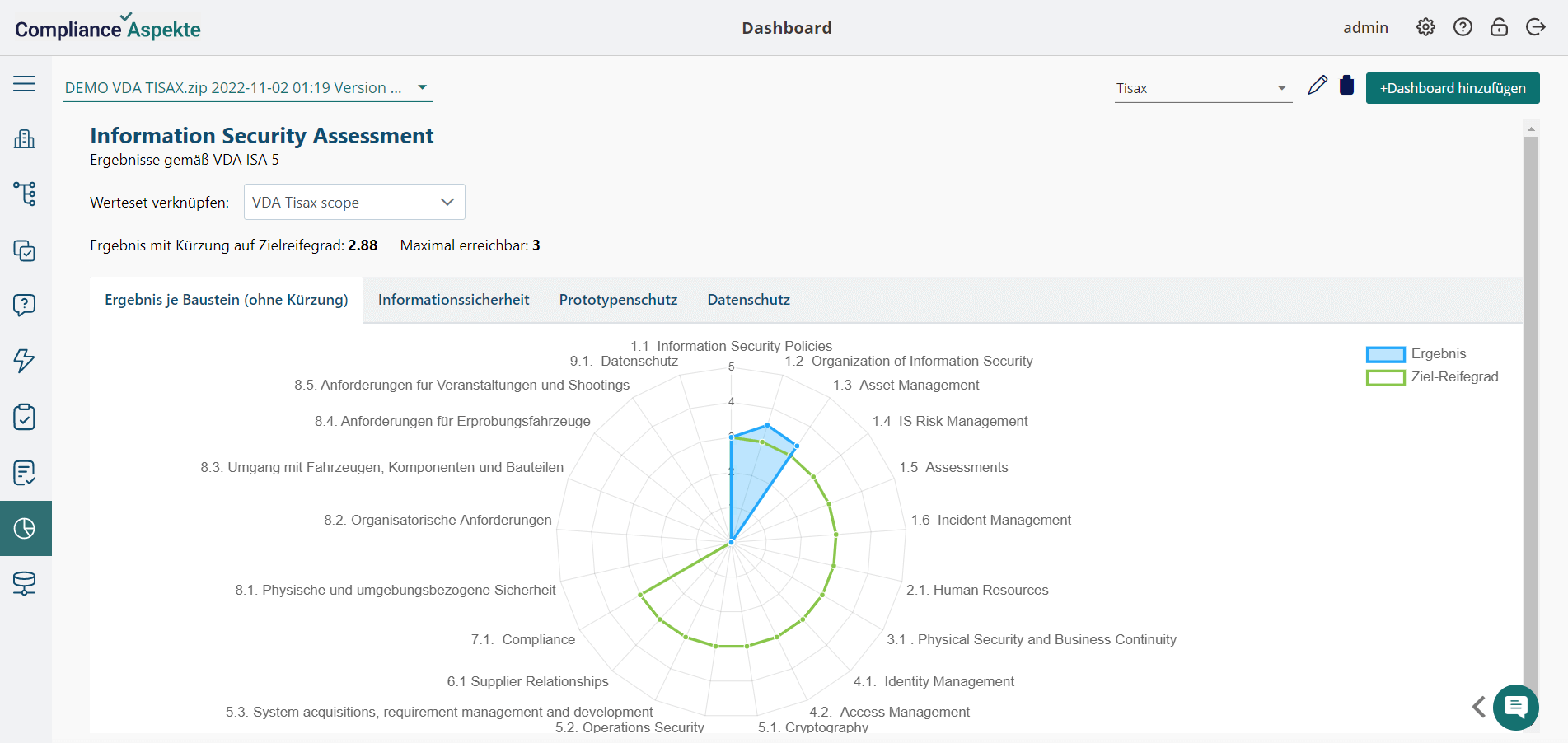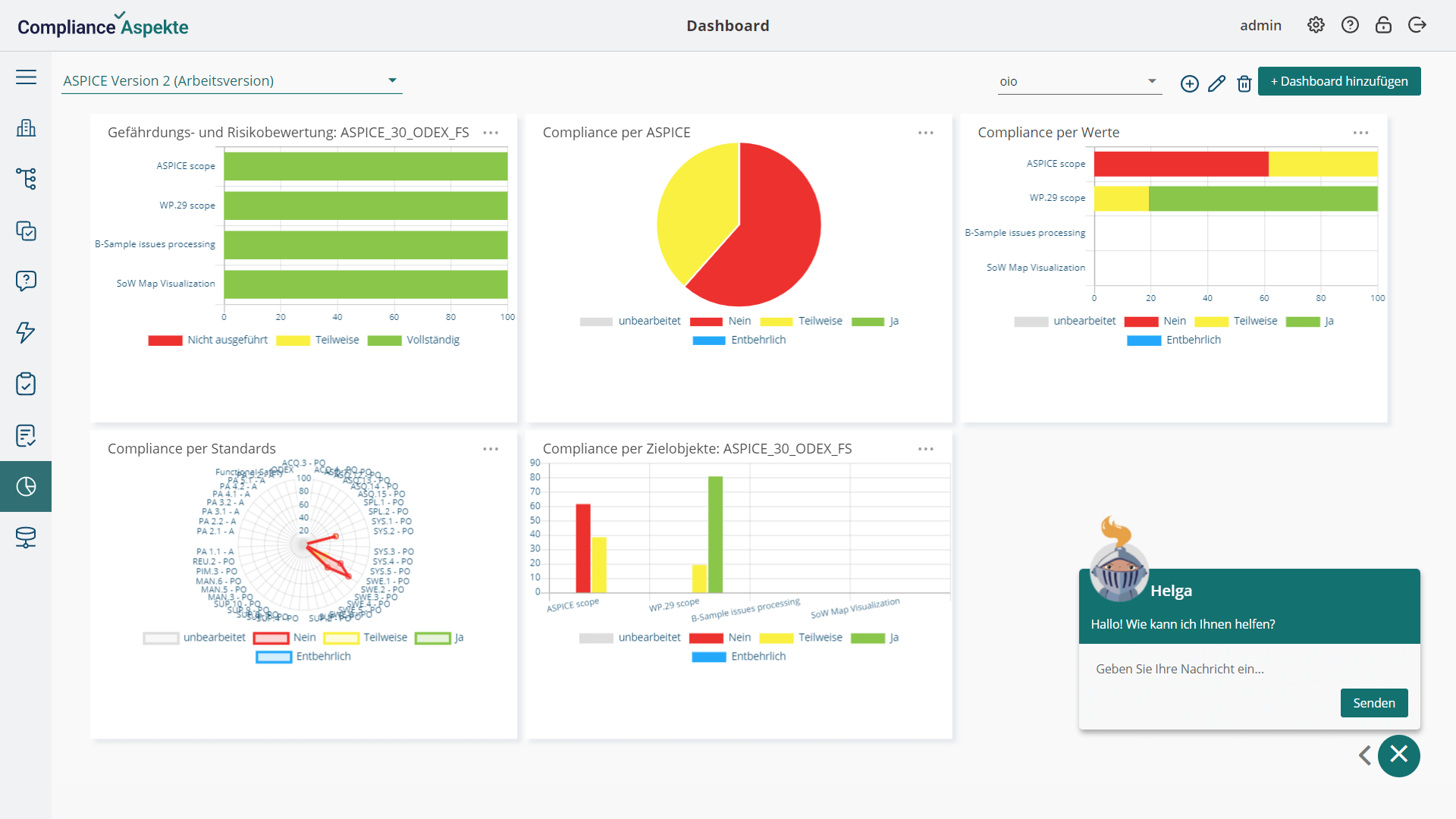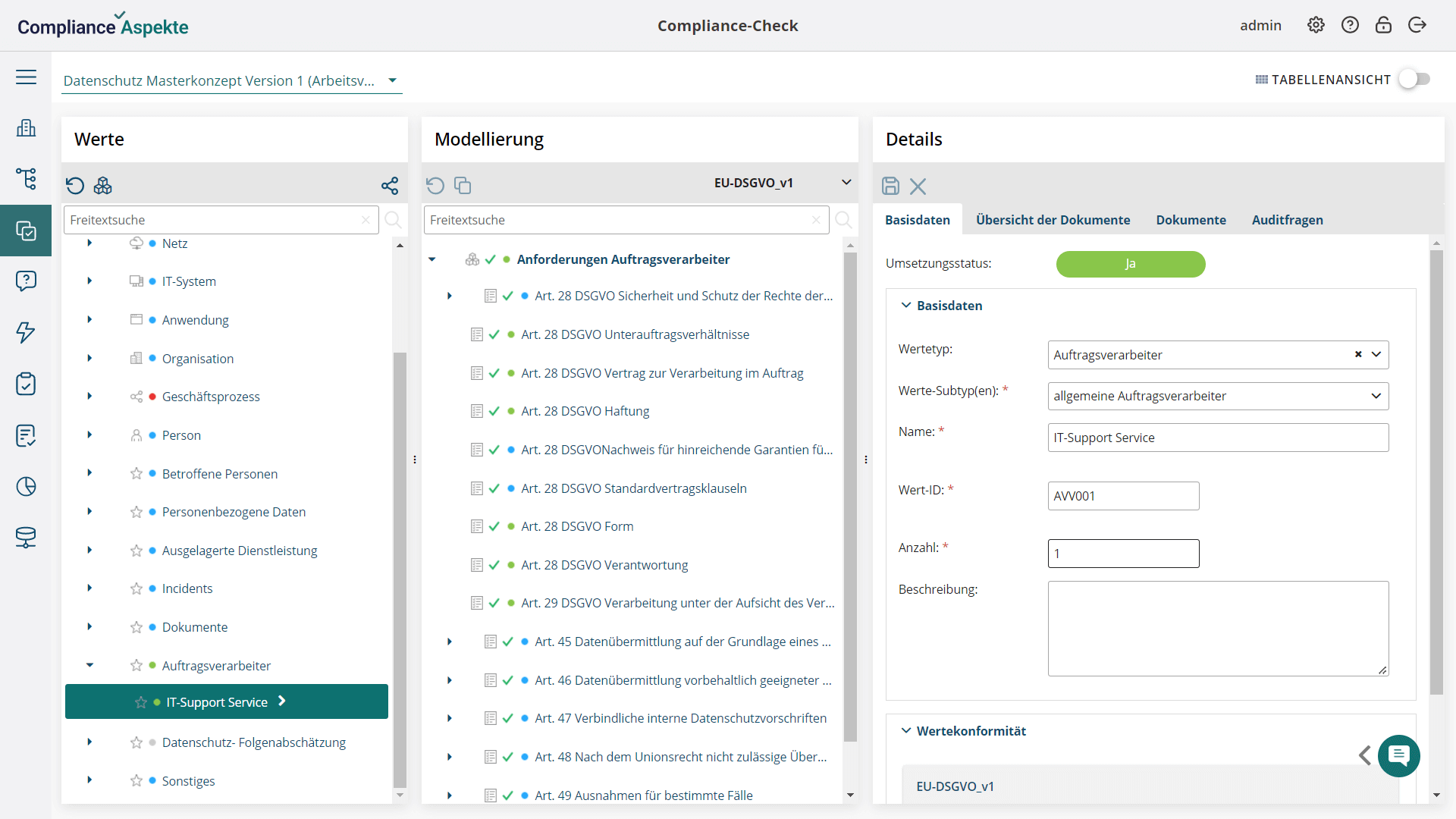Core automotive standards: Your industry compliance checklist
Automotive manufacturers, suppliers, and original equipment manufacturers (OEMs) are the primary types of companies in the automotive industry that should adhere to regulations and standards.
Additionally, companies involved in electric vehicle manufacturing, automotive technology development, and those managing global supply chains are subject to specific regulations relevant to their respective areas within the automotive sector.
New types of consumer demand will primarily drive automotive industry trends in 2024. Leading automotive businesses recognize that security, data protection, sustainability, and green initiatives are essential parts of the entire production and marketing lifecycle.
Therefore, we have made an overview of the international automotive industry standards. But let’s first look at what automotive standards are and how important they are for modern companies in the automotive industry.
To provide support for information security, environmental compliance, quality, and data protection management, Compliance Aspekte helps to implement such automotive standards as ISO 27001, TISAX®, ISO 9001, ASPICE®, ISO 14001, KGAS, ISO 26262-6, ISO/SAE 21434 and GDPR in a single tool. We offer an effective compliance solution by raising awareness and simplifying compliance in a dynamic automotive environment.
What automotive standards are?
Automotive standards are established regulations and requirements for various aspects of the automobile industry, such as safety, emissions, quality and performance, that govern the production and use of automobiles.
Automotive compliance standards play a crucial role in ensuring the safety and quality of vehicles. They define minimum requirements for parts, systems and technologies, ensuring that vehicles meet certain production and automotive safety standards. These standards provide:
- uniform guidelines for the automotive industry;
- promoting commonality and interoperability among components;
- improving overall vehicle reliability and efficiency.
In today’s world, where technology and innovation are transforming the automotive industry, automotive standards specifications also include aspects related to electric vehicles, autonomous driving and environmental sustainability. These standards help set parameters for new technologies, ensuring their safe implementation and consistent functioning with existing vehicle systems.
Automotive security standards Compliance Aspekte supports
Here are the basic automotive standards that help you build and maintain an ISMS for car manufacturers:
TISAX®
TISAX® stands for “Trusted Information Security Assessment Exchange.” It was introduced in 2017 by the German Association of the Automotive Industry (VDA) to address the increasing importance of cybersecurity in the automotive sector.
TISAX® focuses on ensuring the confidentiality, integrity, and availability of sensitive information within the automotive supply chain. This includes protecting against cyber threats and vulnerabilities that could compromise the security of data and systems.
TISAX® applies to 1st and 2nd tier suppliers and extends to more complex supply chains. For certain OEMs, TISAX® certification is a must.
At Compliance Aspekte, we offer software tool and consulting services for TISAX® implementation. Our compliance tool is AI-enabled and supports multiple automotive standards.

ISO 26262
ISO 26262 is a key automotive functional safety standard for vehicles with electrical and/or electronic systems. It provides guidelines and regulations across the entire product lifecycle, from conceptualization and development to operation, service, and decommissioning. Implementing ISO 26262 ensures a step-by-step approach to managing functional safety, covering various levels of product development, including system, hardware, and software.
The importance of this standard is highlighted by its growing adoption in the automotive industry. According to a report by StartUs Insights, standards like ISO 26262 are critical for ensuring the safety of emerging technologies, such as electric and autonomous vehicles. This is reflected in the industry’s innovation, with over 130,000 automotive patents – many focused on safety and sustainability – demonstrating a strong commitment to meeting these safety expectations.
ISO 27001
This standard is not an automotive one but is the basis for creating an Information Security Management System, providing a set of requirements for companies to set up their data and information effectively. ISO 27001 employs a risk management process, which involves a systematic approach to managing sensitive company information so that it remains secure.
It encompasses people, processes, and IT systems by applying a risk management process. By achieving ISO 27001 certification, an organization demonstrates its commitment to information security standards, potentially improving its reputation with clients and stakeholders.
Automotive quality standards Compliance Aspekte supports
These standards act as a reliable foundation that ensures a high standard of production and reliability of cars. Let’s look at the key automotive quality standards and requirements that form the basis of quality in this dynamic industry and are supported by our system.
ASPICE®
ASPICE® (Automotive Software Performance Improvement and Capability Determination) is designed to guide automotive companies through the quality matters of the software they use. ASPICE® framework enables users to define, implement, and assess the process needed for software development in the automotive industry.
This standard was developed in 2005 based on the ISO/IEC 15504 and relied on the V-Model, requiring testing of each phase in the development stages. ASPICE® defines several maturity levels ranging from Level 0 (incomplete process) to Level 5 (optimizing process). Organizations can use these levels to assess and benchmark their software development processes.
Our team provides full guidance needed for the ASPICE® implementation. Compliance Aspekte tool includes:
- ASPICE® structure analysis. The ASPICE® structural analysis provides insight into asset organization, detailing the number of systems, networks, and applications within the organization.
- Compliance check. A compliance check involves aligning implemented requirements with BSI’s specified controls.
- Dashboards. Dashboards offer a visual representation of implemented and partially implemented elements concerning requirements and risks.
- Profile library. The profile library acts as a comprehensive library with all BSI entities, including modules (requirements groups), individual requirements, risks, and corresponding measures.

IATF 16949
IATF 16949 is the International Automotive Task Force’s (IATF) standard for quality management systems in the automotive sector. It was first introduced in 2016. It comprises a set of methods for a common product and process development for automotive manufacturers worldwide.
It is aimed to support the manufacturing of safe and reliable products and maintain continuous improvements of the product. IATF 16949 applies to organizations involved in designing, developing, producing, installing, and servicing automotive-related products.
ISO 9001
ISO 9001 certification is also important for the automotive sector. ISO 9001 is the most popular standard for quality management, as it provides companies with the requirements that businesses can use to develop their own quality programs.
Automotive cybersecurity standards Compliance Aspekte supports
With the rapid expansion of digital technologies in the automotive industry, cybersecurity is becoming an integral part of vehicle safety. Here is one of the most important cybersecurity ISO standards for automotive industry:
ISO/SAE 21434
ISO/SAE 21434 is a standard that focuses on cybersecurity for road vehicles. It was developed by the International Organization for Standardization (ISO) and the Society of Automotive Engineers (SAE) in 2020. This standard establishes methods and requirements for integrating security into vehicle development, production and operation, with a focus on protecting electronic systems and data from cyber threats.
ISO/SAE 21434 is designed to be compatible and complementary with other relevant standards, such as ISO 26262, for functional safety in road vehicles. The standard introduces the concept of Cybersecurity Assurance Levels (CALs) to categorize the level of cybersecurity needed for a specific vehicle or system.
Compliance Aspekte offers companies a centralized platform to streamline compliance management with ISO/SAE 21434. It facilitates tracking compliance activities, assigning responsibilities, and generating comprehensive compliance reports. Our tool assists companies in adopting secure development practices by providing guidance, templates, and industry best practices tailored for cybersecurity within the automotive sector.
Automotive software standards Compliance Aspekte supports
In modern cars, software plays a fundamental role in shaping innovative functionality and determining the safety and efficiency of vehicles. Let’s look at the standard that tops the automotive standards list in the software category.
ISO 26262-6
ISO 26262-6 is a specific part of the international standard ISO 26262, which sets the requirements for functional safety in the automotive industry. This part of the standard focuses on software in automotive systems.
ISO 26262-6 specifies methods and processes for ensuring safety in developing, verifying and testing software used in vehicle electronic components and systems.
This standard is critical to reducing the risks associated with potential software glitches in vehicles and ensuring compliance with the automotive industry’s high safety standards.
KGAS
The Group’s Basic Software Requirements (KGAS) are universal specifications across Volkswagen AG that outline the minimum standards for vehicle software. This encompasses all software influencing vehicle functionalities. KGAS covers requirements for software development processes, including Automotive SPICE standards and Volkswagen AG’s rights concerning software suppliers.
KGAS is mandatory for all suppliers developing control units or vehicle software for Volkswagen AG. Additionally, it serves as the basis for Group Basic IT Systems Requirements (KGAIS), which focuses on IT developments. Since the end of 2015, Technical Development has been committed to aligning internal and external standards in KGAS implementation.
Compliance Aspekte supports KGAS and can help your company implement it with GRC software.
Data Protection on the automotive market
Data protection is becoming paramount to ensuring privacy and security in vehicles. Here are general data protection standards that are recommended for the automotive industry:
GDPR
GDPR is not an automotive regulation, but it is important for this industry because automotive manufacturers process large amounts of data from their partners and customers, which must be protected. Therefore, businesses working inside or with EU member states must be subject to GDPR and should align with the requirements to build strong DPMS.

DSGVO
DSGVO stands for Datenschutz-Grundverordnung in German. DSGVO is a comprehensive data protection and privacy regulation. It is built on several fundamental principles, including the lawful, fair, and transparent processing of personal data. It emphasizes the purpose limitation, data minimization, accuracy, storage limitation, integrity, and confidentiality of personal data.
EMS and sustainability standards
In the modern world of the automotive industry, sustainability and responsibility for environmental challenges are becoming an integral part of company strategies.
ISO 14001
The automotive industry is recommended to maintain environmental management systems due to their high impact on nature. ISO 14001 is the primary EMS certification for car manufacturers worldwide to manage and control all aspects of their environmental footprint.
The significance of automotive standards in today’s world
Let’s look at the main aspects of the impact of automotive compliance in the industry as a whole:
- Safety. Compliance with automotive safety standards ensures a high level of protection for all road users, reducing the risks of road accidents.
- Environmental sustainability. Emissions and energy standards promote the development of more efficient and environmentally friendly vehicle technologies, reducing environmental impact.
- Unification and compatibility. Compliance with standards ensures the unification of parts and components, which simplifies the production and maintenance of vehicles and makes it easier to carry out upgrades.
- Quality and reliability. Automotive industry quality standards ensure that manufacturers maintain high standards of quality and reliability, which ultimately extends the life of vehicles.
- Innovation and technological development. The standards encourage innovation in the automotive industry by ensuring the safe implementation of new technologies and thereby promoting the industry’s overall development.
- Harmonization at the global level. Common global standards facilitate international trade in vehicles and components, helping to develop a global market.
- Consumer protection. Consumers can be confident that vehicles that are compliant with automotive security standards provide a high level of safety, quality, and security.
- Risk reduction. Compliance with standards minimizes possible technical problems and risks, which leads to an increase in the overall reliability and safety of vehicles.
Emerging trends and advancements in automotive standards
Seeking constant improvement and meeting today’s challenges, the automotive industry is in a whirlwind of exciting change and innovation. Let’s consider important areas of development that shape the future of automotive technology through the prism of current automotive regulations and standards:
- Autonomous driving. Advancing standards to ensure the safety and effective integration of autonomous vehicles.
- Cybersecurity. Developing cybersecurity standards to protect modern automotive systems.
- Connected mobility. Integration of standards for efficient interaction between vehicles and infrastructure.
- Sustainability and environmental compatibility. Expanding emissions and eco-design standards, with an emphasis on sustainable production.
- Internet of Things (IoT). Application of standards for a balanced relationship between vehicles and other devices and systems.
- Data processing. Developing standards for efficient processing and secure data transmission, taking into account the growing number of car sensors.
- Global standards. Strengthening efforts to harmonize standards that reflect the global market’s needs for the development of the automotive industry.
Holistic compliance management for the automotive industry
Regulations and standards in the automotive industry play a critical role in ensuring the safety, quality and efficiency of vehicles. They form the basis for innovation, sustainability and harmonization in the global automotive industry. With a vast collection of standards and regulations to align with, automotive companies do not underestimate the importance of a holistic and tool-driven approach that will enable their CISOs to manage comprehensive standards.
Compliance Aspects offers comprehensive support for information security, environmental compliance, quality assurance, and data protection management within the automotive sector.
Our platform facilitates adherence to key automotive standards, including ISO 27001, TISAX®, ISO 9001, ASPICE®, ISO 14001, KGAS, ISO 45001, ISO 26262-6, ISO/SAE 21434, and GDPR through a unified toolset.
We streamline compliance processes and enhance awareness, delivering an efficient solution tailored to the evolving automotive landscape.
If you have specific questions about automotive standards and regulations or are interested in implementing a particular standard using our compliance tool, please contact us. Our team will be happy to provide you with a non-binding first free consultation and support you at all stages of the implementation of the compliance requirements.
FAQ
What role do automotive standards play in ensuring vehicle safety and quality?
Automotive standards serve as essential benchmarks for ensuring vehicle safety and quality throughout the manufacturing process. By adhering to these standards, automotive manufacturers can implement rigorous quality control measures, incorporate advanced safety features, and mitigate risks associated with vehicle defects or malfunctions. Compliance with standards also fosters consumer confidence by demonstrating a commitment to producing reliable, durable, and safe vehicles that meet or exceed regulatory requirements and industry expectations.
How do automotive standards adapt to emerging technologies, such as electric vehicles and autonomous driving?
Automotive standards continually evolve to accommodate emerging technologies, including electric vehicles (EVs) and autonomous driving systems. Standards organizations collaborate with industry experts, researchers, and regulatory agencies to develop guidelines and requirements that address the unique safety, performance, and interoperability challenges posed by these innovations. This process involves conducting comprehensive risk assessments, testing methodologies, and validation protocols to ensure that standards keep pace with technological advancements.
What factors should automotive businesses consider when selecting compliance tools for their operations?
When selecting compliance tools for their operations, automotive businesses should consider several factors to ensure alignment with their specific needs and objectives. Key considerations include the scalability and flexibility of the tool to accommodate future growth and evolving regulatory requirements. Integration capabilities with existing systems and compatibility with industry-standard formats are also essential for seamless data exchange and interoperability.
How can stakeholders stay informed about updates in automotive standards?
To stay abreast of the latest updates in automotive standards, stakeholders are advised to follow publications from ISO/TC 22 and other industry regulatory bodies. Regularly visiting websites, subscribing to newsletters and attending automotive industry events will help you stay up to date with the latest developments and requirements in this dynamic field.
What is the connection between automotive norms and ISO Automobilindustrie?
ISO Automobilindustrie, or ISO/TC 22, is the technical committee of the International Organization for Standardization responsible for developing standards in the field of automotive technology and transport. It sets international standards, including those covering safety, emissions, electronics and other aspects of the automotive industry.
Try Compliance Aspekte For Free
Book a 1-2-1 Live Demo and Obtain a 3-months Non-binding Trial
